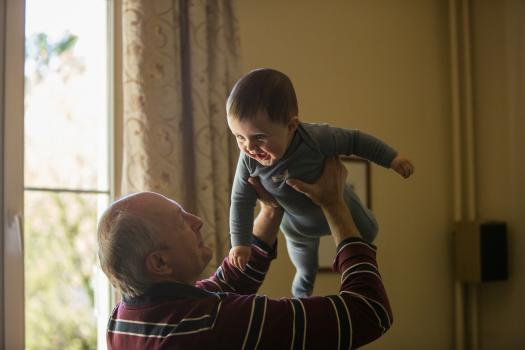The Government has announced today (25 June 2020) that there will be major changes to the family court system to protect victims of domestic abuse and their children.
The Domestic Abuse Bill is currently at the report stage in the House of Commons but includes sweeping changes that are aimed to further protect victims of domestic abuse, including a greater emphasis on the Court process.
Major reforms include more victims of domestic abuse being able to use separate court entrances and buildings, as well as the use of protective screens to shield them from their abuser in court. It will also be easier for Judges to issue barring orders, stopping alleged abusers from repeatedly bringing their victims back into the court system.
This follows an expert-led review, led by the Ministry of Justice, into the current Family Courts system and domestic abuse in general. The panel was made up of representatives from a wide range of domestic abuse charities, family lawyers and academics. The review considered the views of over 1200 individuals and organisations.
Justice Minister, Alex Chalk said “Our landmark Domestic Abuse Bill will transform society’s response to this destructive crime – protecting victims and pursuing perpetrators more than ever before. This report lays bare many hard truths about long-standing failings, but we are determined to drive the fundamental change necessary to keep victims and their children safe.”
The review found that the current process often worsened the relationship between parents and children, and would cause additional conflict, leading to potential long-term effects and harm to any children within the relationship.
The bill reforms how the courts hear cases and will be focussed on an investigative approach. This forms part of a trial known as Integrated Domestic Abuse Courts, which will initially be run as a pilot scheme. The integrated courts will aim to consider both civil and criminal matters in parallel, providing better support for the victims and undertaking an investigative and problem-solving approach to find the root of the problem.
The reforms form part of the Implementation Plan which was published by Ministers today and this sets out immediate to long-term steps which include:
- Automatic entitlement to the use of separate entrances and waiting rooms for domestic abuse victims.
- Screens in court to shield victims of domestic abuse from their alleged abuser.
- Trialling an investigative and problem-solving approach rather than both parties presenting their cases against each other. In this case, the judge will decide which evidence to explore, and this forms part of the upcoming pilot of Integrated Domestic Abuse Courts.
- A change to the provision of barring orders, preventing abusers from continually pulling their victims back to court over child arrangements (which can, in itself, be a form of abuse)
- Reviewing ‘parental involvement’ and ensuring that the correct balance is attained to minimise the risk of harm to any children involved, whilst allowing the child to have a relationship with both parents.
The move has been welcomed by domestic abuse campaigners, charities and family lawyers. Domestic Abuse Commissioner, Nicole Jacobs said:
“Problems in the family court are the single most common concern raised with me as the Domestic Abuse Commissioner, and I am glad to see this report published in time to implement its recommendations through the Domestic Abuse Bill. I welcome the work of the panel and the breadth of evidence and expertise that has gone into this report, and I thank those victims and survivors who shared their experiences as part of this process.”
In addition to the changes to the Family Court system, the Domestic Abuse Bill also overhauls the response to dealing with perpetrators and victims of domestic abuse. Key points in the Bill include:
- Creating a statutory definition of domestic abuse. A clear understanding is that domestic abuse includes physical violence, emotional abuse, coercive and controlling behaviour and economic abuse.
- Creating the role of a Domestic Abuse Commissioner to feedback to the Government and highlight domestic abuse.
- Introduction of Domestic Abuse Protection Notices and Domestic Abuse Protection Orders to further strengthen the rights of victims and provide additional protection.
- Duty of care is placed on local authorities to support victims and children by providing safe accommodation and refuge.
- Removing the ability for perpetrators of abuse to cross-examine their victims in court.
- Domestic abuse offenders will be subjected to a polygraph test as a condition of their licence.
- Statutory footing for Domestic Violence Disclosure Scheme (also known as Clare’s Law)
The Bill also brings additional funding to support victims of domestic abuse, with £35 million being allocated by the Government and an additional £76 million to support victims during the Covid-19 pandemic.






